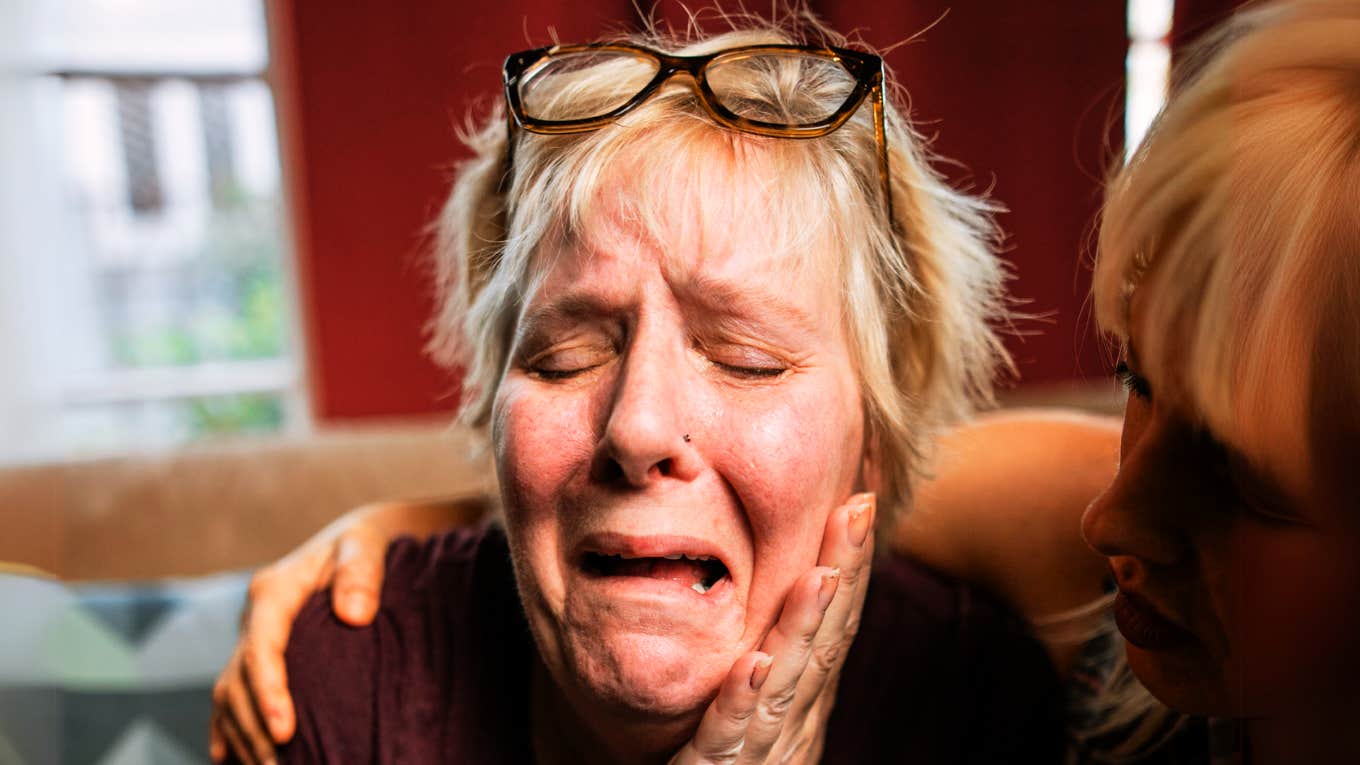When My Therapist Did This Right In Front Of Me, I Knew I Couldn’t Go Back To Her
Her response scared me, and I didn’t know what to do.
 RDNE Stock project | Canva
RDNE Stock project | Canva I was the one who was supposed to fall apart. I was deep in grief — a shell of a person. My mother had just died, and I was barely functioning, seeing my therapist twice a week to keep from slipping under completely.
I would sit on a cream couch in that small therapy room, surrounded by framed degrees and forgettable artwork. It wasn’t sterile but quiet, dimly lit, and neutral enough to hold whatever I brought in.
My therapist, Roberta, was kind and soft-spoken. She nodded at the right moment, and I trusted her.
She had suffered a stroke, and the entire right side of her body was paralyzed. She’d survived more than most. In one session, I talked about my final moments with my mom.
I told her what it felt like to lose my mom, what I saw in the moment, and what it did to me. When I mentioned Mom’s refusal to stop breathing, my last words to her were, “It’s okay, Mom, you can go now. We’ll be alright.”
And then my therapist started crying — not gently, she sobbed, her shoulders shaking and face twisted.
She leaned over to grab a tissue off the table and lifted her black-framed glasses to wipe her eyes. I froze. I was already unraveling, but suddenly I was the one comforting her. I remember thinking, this can’t be happening. Not here. Not her.
I felt horrible. I knew this experience was heavy, but I never imagined this response. My first instinct was to apologize. I wanted to hug her.
 Kmpzzz / Shutterstock
Kmpzzz / Shutterstock
She apologized to me and assured me she was okay, and I never went back.
I left the office and sat in my car forever — or at least what felt like forever. I felt overwhelmed and confused. My breath came in short bursts, my heart raced, and I had tunnel vision.
This was my fault. How could I put those intimate details on someone else? I should have known better.
I replayed every word I’d said, wondering which one had cracked her open. I hated myself for needing so much, for being too much. I sucked in a deep breath, started the car, and drove through blurred tears.
I didn’t look for another therapist after that. I couldn’t.
I disappeared inside of myself and learned to smile and perform happiness for others, for their comfort. I needed someone who could hold my pain without breaking. And Roberta couldn’t do it that day.
It wasn’t her fault. She responded in a very human way. I don’t know what my story triggered in her — maybe something she had lived through and never talked about.
Perhaps it was too close to home.
But that moment with my therapist made one thing brutally clear: Not everyone can hold your pain, even when they love you.
Some of us — especially the “strong” ones — learn this the hard way. We learn that caretakers break, too, that even professionals have limits, and that being heard and being held are not the same thing.
So I did what I always did. I carried it.
I cried alone in my bed at night, whispering into the dark, hoping my mother could still hear me. I leaned on my fiancé when I could, even when he didn’t know what to do with my sadness.
I journaled, disassociated, and I got through it. Somehow. Because what other option was there?
Grief doesn’t wait for the perfect container. It spills everywhere, like an overflowing bathtub. Looking back now, I realize something I couldn’t see then.
Roberta was an excellent therapist. That day, her empathy flowed from her eyes, and her tears were for me. I was too young and inexperienced to understand that. But now, as a middle-aged woman, I do.
With her gentle energy and kindness, she could have been my grandmother. She listened to me and felt my experience in her soul.
I understand this now more than ever. When I care for someone, their pain becomes mine, and their tears trigger my emotions. Tears are strength, connection, and humanity.
If my therapist cried like that today, I wouldn’t leave. I would stay.
I would understand. I would see it as a connection, not a collapse. But I’m still here. Still writing. Still healing.
Sherene Jensen is a writer, educator, and editor whose work explores grief, creativity, emotional healing, and human connection. Her essays are featured in several Medium-based publications, including The Memoirist, Write A Catalyst, and Age of Empathy. She is also the founding editor of Shaped Souls, a personal essay publication focused on emotionally honest storytelling.

